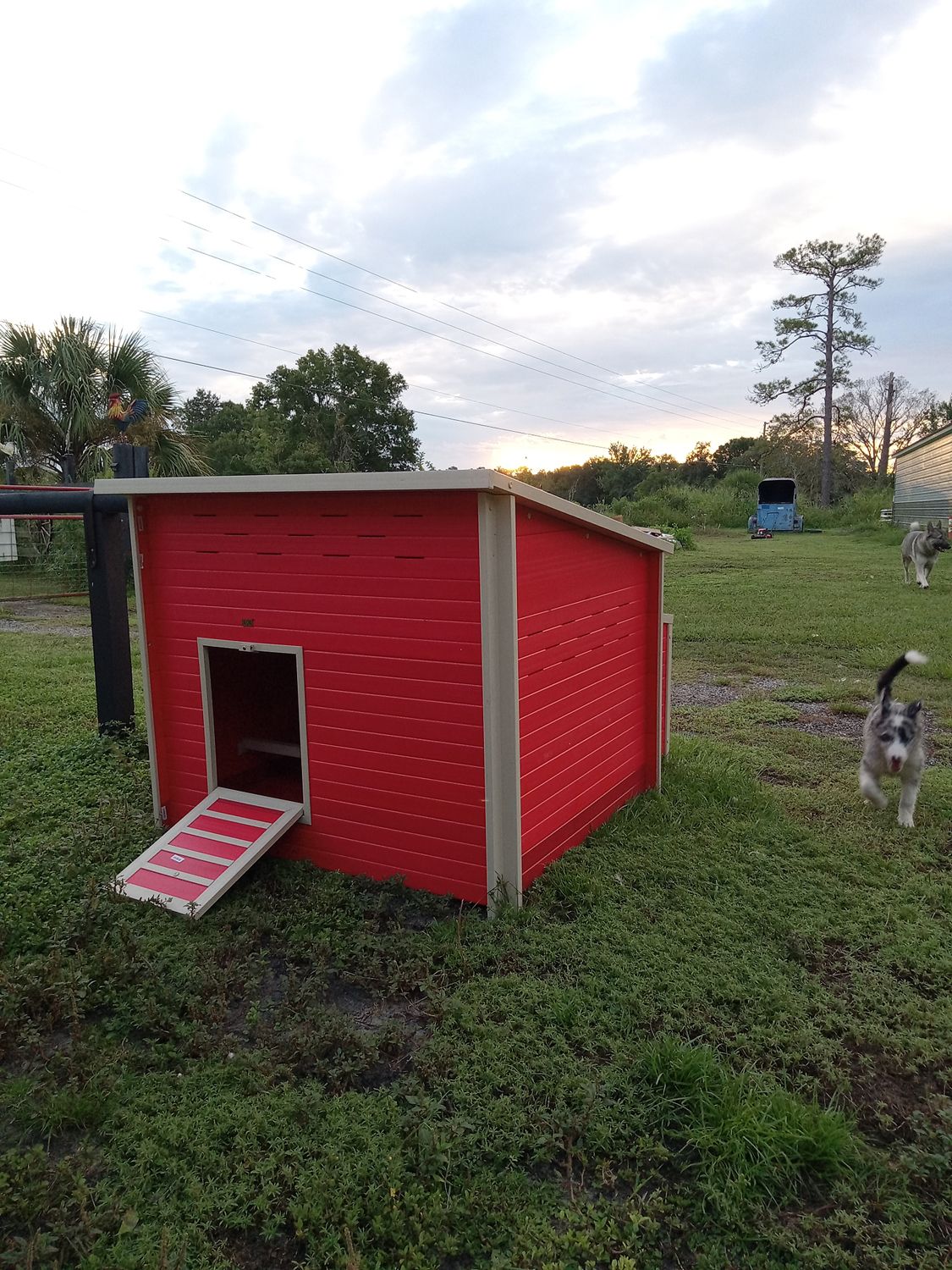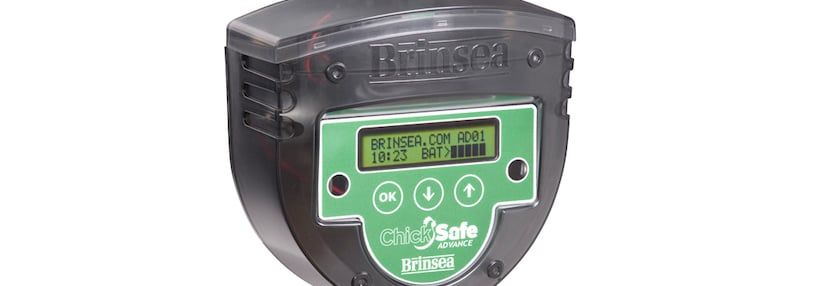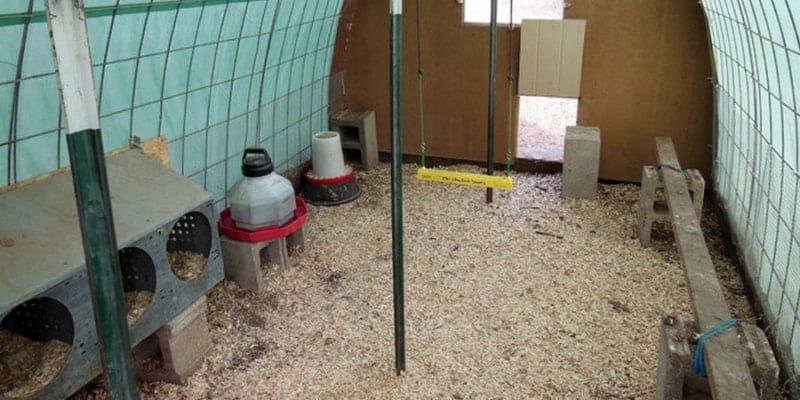Averting Algae Accumulation
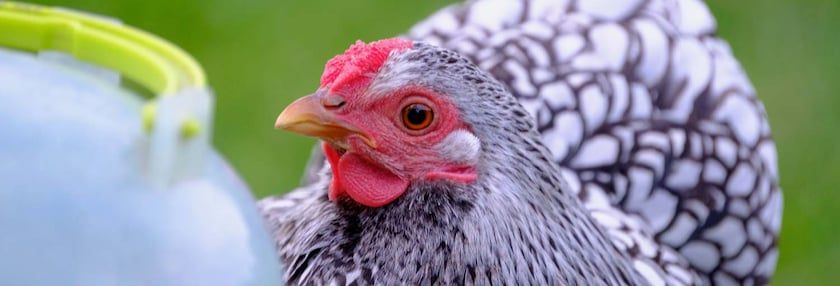

Testing AciMate drinking water conditioner
In the hot summers of the south, we deal with algae growth in the chicken waters every year. One way to do that is to clean the waterers daily and that includes scrubbing. I don’t know about you, but I just don’t have time for that.
I have used apple cider vinegar (ACV) in the past and that works well, but even then some algae may build up. It is easier to clean, but still some scrubbing action is needed. Then, I was asked to test out the AciMate Water Acidifier product from FlexTran in our coop. I was interested to see how it compared to Apple Cider Vinegar.
AciMate claims to lower pH levels in water, eliminating algae and fungal growth. They claim to be cheaper to use and more effective than vinegar or any other household product as it comes in a concentrate solution, they say is 10 times stronger than Apple Cider Vinegar.
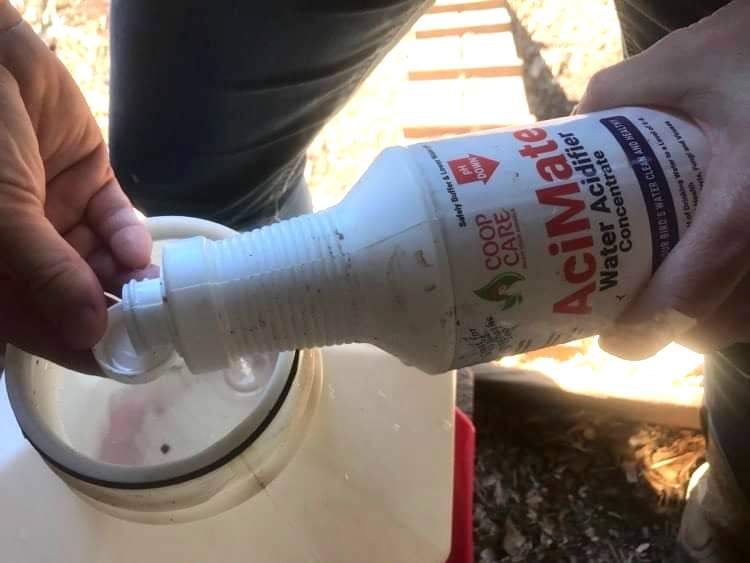
Testing on the farm
We have four 5-gallon plastic waterers in our chicken coop, so I conducted a few unofficial—but real-world—experiments to compare the results. After cleaning all four waterers thoroughly, I began my study.
Each time I filled the waterers with ACV, I added ¼ cup to the water. For AciMate, I followed the dosing directions by adding one lid-full for each gallon. I appreciated the ability to use the lid for appropriate dosing. That made dosing accurate easier. The lids are very small and hold .25 oz., so even with four 5-gallon waterers I wasn’t going through the solution of a 32 oz bottle very quickly.
Week 1: I used ACV in the front two waterers and AciMate in the back two waterers. After 7 days, it was time to refill the waterers.
After dumping out the water and before cleaning, I observed that there was some algae growth in both waterers that had ACV. There was some on the very bottom of the waterer on the inside that washed out with just a spray of the hose. There was also some on the outside bottom of the waterer between the container and the tray, which needed a light scrubbing for cleaning. I noticed the waterer by the open door was more contaminated than the waterer that is by the closed door—probably due to sun exposure.
The two waterers with AciMate did not have any evidence of algae growth. All I needed to do was spray them down to remove dust and debris the chickens kick up, and refill the waterers.
Week 2: I wanted to make sure the results were accurate, so after refilling the waterers with water, I put AciMate in the front two waterers that had ACV during Week 1 and I put ACV in the back two waterers that had AciMate during Week 1.
After 7 days, it was time to refill the waters and although there was less algae than Week 1 in the waterers that received ACV treatment, it was still present and the was no visible signs of algae growth in the waterers that received AciMate.
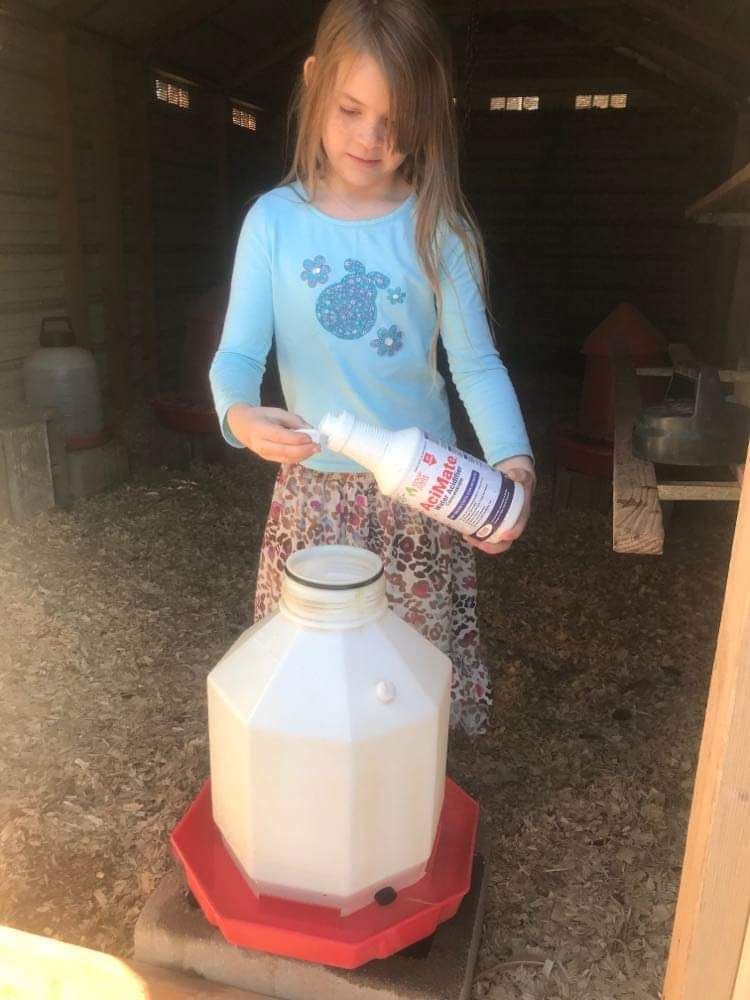
Week 3: While I felt that the last two weeks of experimenting had proven the benefits of using AciMate, I thought it might be good to have a control waterer to compare how much work these products were doing, so after cleaning and refilling all the waterers with water, I added ACV to one waterer and AciMate to one waterer and I did not add anything to the last two waterers.
After 7 days, there was a visible difference between the waterers. The “nothing added” control waterers had a much thicker layer of algae on the bottom as well as a thin layer of algae around the sides as well as in the tray. Both waterers needed a good scrubbing to remove the algae and clean the waterers.
The performance of the ACV and AciMate was the same as previous weeks.
The final mojo
I’m sold and plan to continue to use AciMate each summer to help reduce algae and fungus growth in the waterers to make cleaning easier and less time consuming.
One thing to be aware of is that AciMate has not been tested using metal waterers, so we do not recommend using it in them at this time. Similarly, Apple Cider Vinegar cannot be used in metal waterers as it can corrode the metal and cause toxic chemical to leech into the water supply. Both products are best used in plastic waterers.
For more information
FlexTran Animal Care
Email: customerservice@flextraninc.com
417-334-3325
flextrananimalcare.com/collections/backyard-chicken-products
Tags:Real Reviews

Chicken Whisperer is part of the Catalyst Communications Network publication family.







